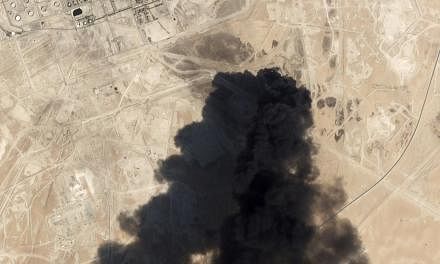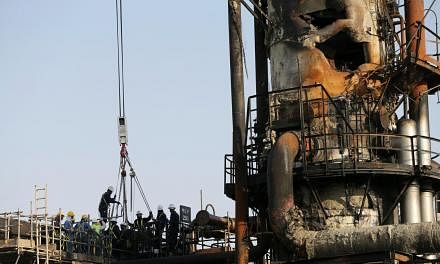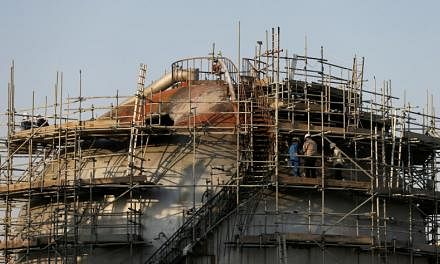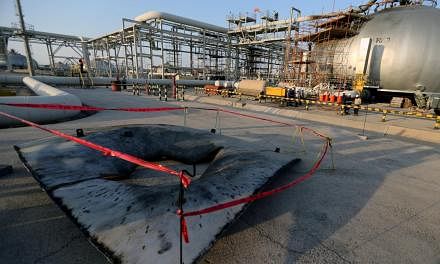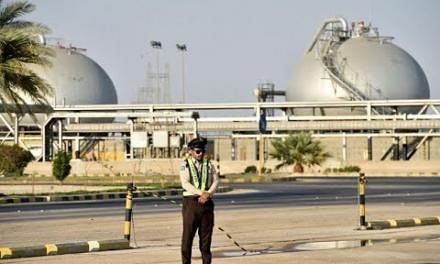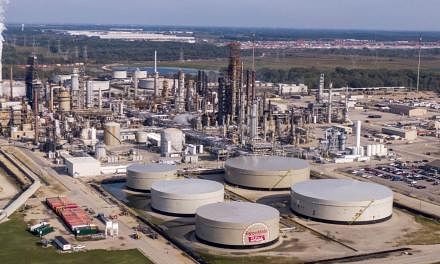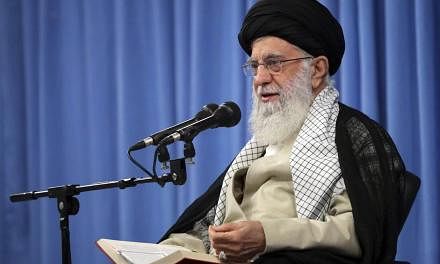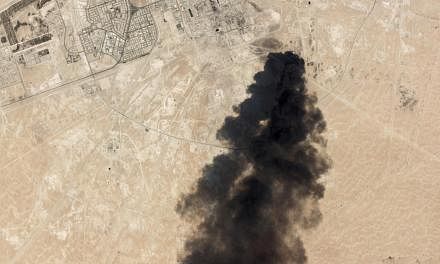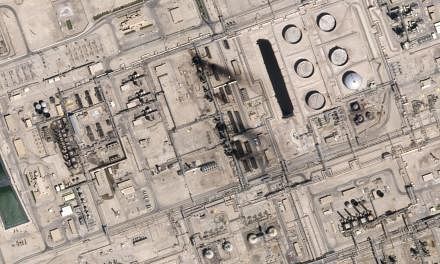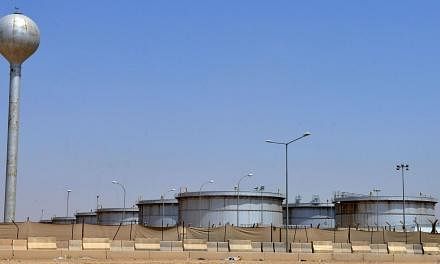DUBAI • Iranian-backed Yemeni rebels said that oil installations in Saudi Arabia remain a target after drone attacks on two major sites slashed the kingdom's output by half and triggered a record surge in oil prices.
The Houthi rebel group said that its weapons could reach anywhere in Saudi Arabia. Last Saturday's strikes were carried out by aircraft equipped with a new type of engine, it said.
"We assure the Saudi regime that our long hand can reach wherever we want, and whenever we want," Houthi spokesman Yahya Saree said in a statement.
"We warn companies and foreigners not to be present in the facilities that were hit in the strikes because they are still within range and may be targeted at any moment."
United States Secretary of State Michael Pompeo said on Sunday there was no evidence the raids were carried out from Yemen. He blamed Iran, as did Energy Secretary Rick Perry yesterday.
Saudi Arabia is leading the coalition fighting the Houthis in Yemen, waging a bombing campaign that has killed thousands.
The Western-backed Sunni Muslim alliance intervened in Yemen in March 2015 to try to restore the internationally recognised government ousted from power by the Houthis in the capital Sanaa.
The war is considered the world's greatest humanitarian crisis of recent years, displacing millions of people and leaving millions more at risk of starvation.
The Houthis claimed to have used 10 drones in last Saturday's attack; US officials said there were 17 points of impact.
The rebel group has launched missile and drone attacks into Saudi territory before, but never anything on that scale or against such vital targets, or so deep into the kingdom, some 800km from Yemeni territory.
At a news conference last night, Saudi military spokesman Turki al-Maliki said the kingdom's ini-tial investigations showed that "the terrorist attack did not come from Yemen, as claimed by the Houthi militia".
"This terrorist attack is a large-scale cowardly act and as I said, targets the global economy and not just the kingdom," he said.
"All the indications and operational evidence, and the weapons that were used in the terrorist attack, whether in Buqayq or Khurais, indicate with initial evidence that these weapons are Iranian weapons," he added.
Colonel al-Maliki offered no immediate evidence to support his allegations, which came after US President Donald Trump said the US awaited word from Saudi Arabia about who it suspected launched the attacks.
Col al-Malki said Saudi Arabia was capable of protecting vital energy and economic sites. He added that the authorities would reveal the location from where the drones were launched at a future news briefing.
Iraqi Prime Minister Adel Abdel-Mahdi said he received a call yesterday from Mr Pompeo, who confirmed that the attack did not come from Iraq.
Iraq is home to Iranian-backed Shi'ite militias who aided it in its fight against militant group Islamic State in Iraq and Syria.
Iranian Foreign Ministry spokesman Abbas Mousavi again denied the US' claims yesterday, telling journalists that the accusation was "condemned, unacceptable and categorically baseless".
Government spokesman Ali Rabiei, meanwhile, said a hoped-for meeting between Iranian President Hassan Rouhani and Mr Trump at the UN General Assembly next week in New York would not happen, as of now.
BLOOMBERG, NYTIMES, ASSOCIATED PRESS

